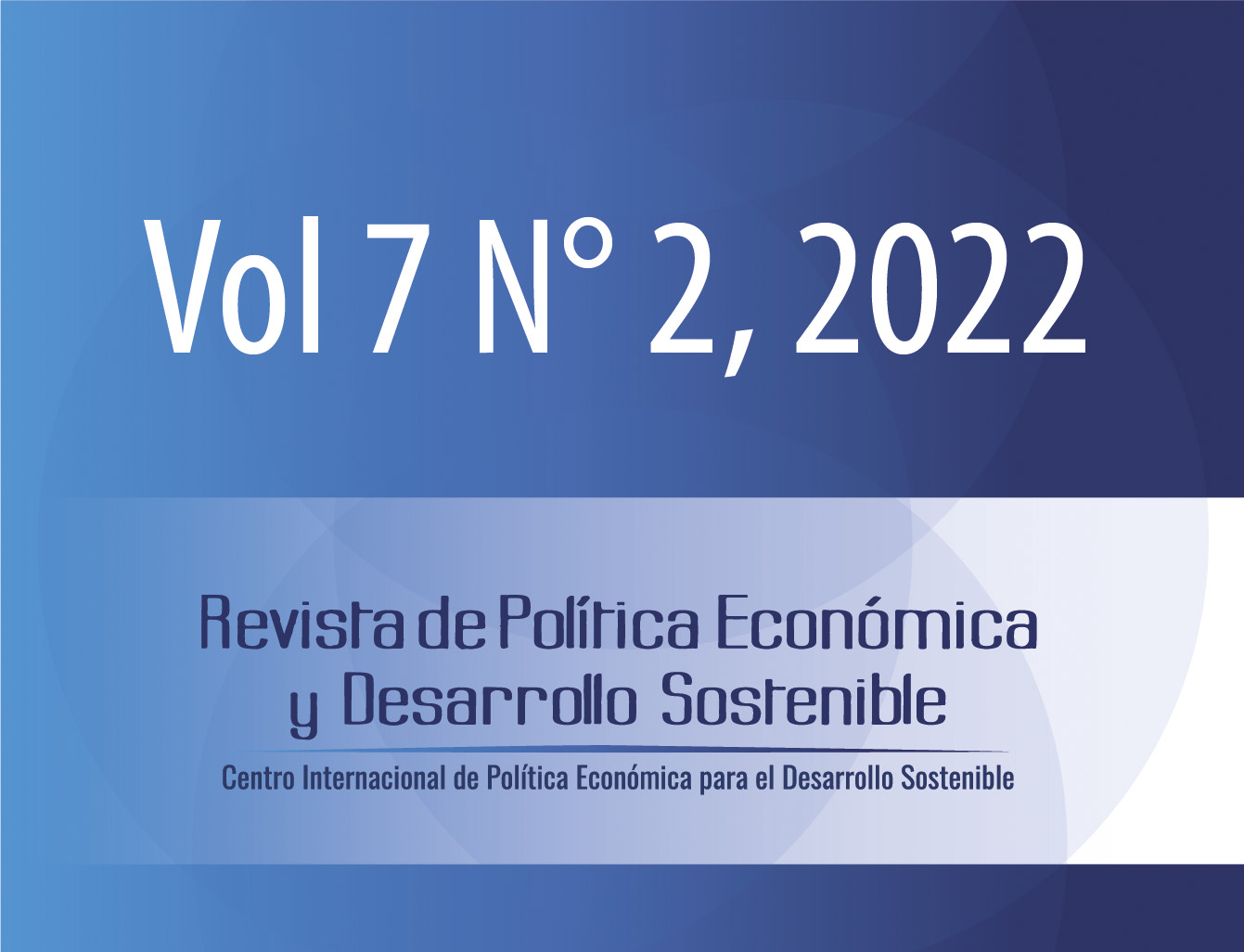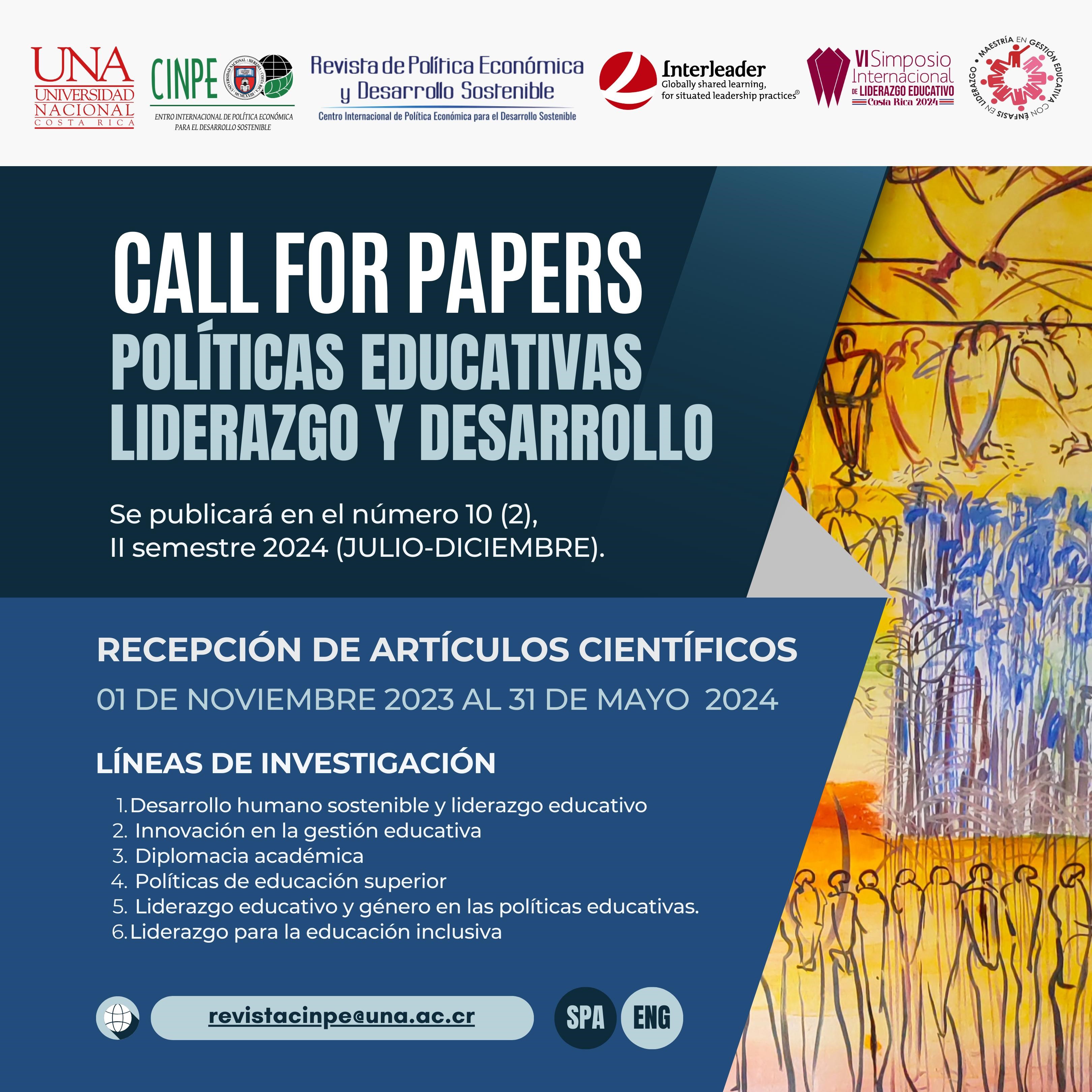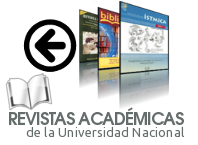Link between required type of knowledge and received wage in the services sector of free zones in Costa Rica
A perspective from the occupation cluster
DOI:
https://doi.org/10.15359/peds.7-2.1Keywords:
Foreign Direct Investment, High Technology, Multivariate Analysis, Human Capital, Knowledge, Economics, High technology, Multivariate Analysis, Human Capital, Knowledge, Economy, Foreing Direct InvestmentAbstract
The free zones constitute the most human capital. However, this fact does not avoid the heterogeneity that in the services sector can coexist with asymmetric dynamics, dissimilar remuneration levels and different added values between job positions. This article intended to prove if there is a link between the wage and the type of knowledge required to labor for four conglomerates of the service sector from the perspective of occupation clusters: dynamic area of the Costa Rican economy with production, employment, and wages growth rates over the national media. At the same time, the services sector comprises the productive activities of higher added value since much of their operations are associated with knowledge-intensive processes and high-rating Information Technology (IT), logistics, contact center, and shared service/back office. Through a parametric test of difference in mean and an analysis of variance between the media of these conglomerates, it’s found conclusive evidence that the services associated with technologies of information, characterized for an intensive level of knowledge, enjoy a wage premium. These conditions denote the importance of developing associated knowledge with these production processes.
References
Abdal, A., Torres-Freire, C. & Callil, V. (2016). Rethinking sectoral typologies: A classification of activity according to knowledge and technological intensity. RAI Revista de Administração e Inovação, 13(4), 232-241. https://doi.org/10.1016/j.rai.2016.09.006
Banco Central de Costa Rica (BCCR) (2021). Indicadores económicos. https://www.bccr.fi.cr/indicadores-economicos
Bartlett, M. S. (1937). Properties of sufficiency and statistical tests. Proceedings of the Royal Society of London, series A, 160(901), 268-282. https://royalsocietypublishing.org/doi/pdf/10.1098/rspa.1937.0109
Carmona, M. & Carrión, H. (2015). Potencia de la prueba estadística de normalidad Jarque-Bera frente a las pruebas de Anderson-Darling, Jarque-Bera Robusta, Chi-Cuadrada, Chen-Shapiro y Shapiro-Wilk [tesis de licenciatura]. Universidad Autónoma del Estado de México. http://ri.uaemex.mx/handle/20.500.11799/94337
Céspedes, O. & González, C. (2002). Recursos humanos para las empresas multinacionales de alta tecnología: Análisis de las brechas entre oferta y demanda. Fundación CAATEC. http://caatec.org/wp-content/uploads/2019/04/CR_Digital_2.pdf
Ciravegna, L. (2012). Promoting Silicon Valleys in Latin America: Lessons from Costa Rica. Taylor & Francis Group.
Coalición de Iniciativas de Desarrollo (CINDE) (2017). Régimen de Zona Franca en Costa Rica. https://www.cinde.org/es/recursos/regimen-de-zona-franca-en-costa-rica
Coalición de Iniciativas de Desarrollo (CINDE) (2017). Human Capital Costs: Services. https://www.cinde.org/en/resources/human-capital-cost-services
Coalición de Iniciativas de Desarrollo (CINDE) (2018). Empresas de zonas francas generan 72% de las exportaciones de servicios de alto valor agregado del país. https://www.cinde.org/es/noticias/empresas-de-zonas-francas-generan-72-de-las-exportaciones-de-servicios-de-alto-valor-agregado-del-pais
Council for Adult and Experiential Learning (CAEL) (2019). Hampton Roads for Talent Alignment Strategy. https://www.vcwhamptonroads.org/resources
De Schutter, O., Swinnen, J. & Wouters, J. (Eds.) (2012). Foreign Direct Investment and Human Development: The Law and Economics of International Investment Agreements. Taylor & Francis Group.
Gallagher, K. P., Chudnovsky, D. & Ocampo, J. A. (Eds.) (2009). Rethinking Foreign Investment for Sustainable Development: Lessons from Latin America. Anthem Press.
Govaere-Vicarioli, V. (2019). La paradoja de Costa Rica (1984-2018): Éxito exportador y heterogeneidad estructural. Revista Nacional De Administración, 10(1), 87-104. https://doi.org/10.22458/rna.v10i1.2487
HR & A (2019). NYC’s Tech Opportunity Gap: Strengthening Pathways and Collaboration Within High-Tech Workforce Development. https://civichall.org/wp-content/uploads/2021/09/Tech-Ecosystem-Gaps-Full-Report-3-1.pdf
Instituto Nacional de Estadística y Censos (INEC) (2021). Empleo. https://www.inec.cr/empleo
Muller E. & Doloreux, D. (2007). The Key Dimensions of Knowledge Intensive Business Services (KIBS) Analysis: A Decade of Revolution. Working Papers "Firms and Region" U1/2007, Fraunhofer Institute for Systems and Innovation Research (ISI). https://ideas.repec.org/p/zbw/fisifr/u12007.html
Monge-González, R., Crespi, G. & Beverinotti, J. (2019). Confrontando el reto del crecimiento: Productividad e innovación en Costa Rica. Banco Interamericano de Desarrollo (BID). http://dx.doi.org/10.18235/0002859
Monge-González, R. & Hewitt, J. (2018). La automatización en los servicios de exportación de alimentos, tecnologías de información y comunicación, y servicios offshore en Costa Rica: Impactos sobre el empleo y la competitividad. 10.13140/RG.2.2.14098.76489
Nolan, C., Morrison, E., Kumar, I., Galloway H. & Cordes, S. (2011). Linking Industry and Occupation Clusters in Regional Economic Development. Economic Development Quarterly, 25(1), 26-35. https://doi.org/10.1177/0891242410386781.
Organización para la Cooperación y el Desarrollo Económicos (OCDE) (2012). Attracting Knowledge-Intensive FDI to Costa Rica: Challenges and Policy Options. https://www.oecd.org/countries/costarica/E-book%20FDI%20to%20Costa%20Rica.pdf
Paus, E. (2007). Inversión extranjera, desarrollo y globalización: ¿Puede Costa Rica emular a Irlanda? Editorial UCR.
Promotora del Comercio Exterior de Costa Rica (Procomer) (2016). Balance de zonas francas en Costa Rica: Beneficio neto del régimen para Costa Rica, 2011-2015. https://www.procomer.com/wp-content/uploads/Materiales/balance-zonas-francas-beneficio-neto-2011-20152020-01-03_17-10-40.pdf
Promotora del Comercio Exterior de Costa Rica (Procomer) (2019). Balance de zonas francas en Costa Rica: Beneficio neto del régimen para Costa Rica, 2014-2018. https://www.procomer.com/wp-content/uploads/Balance-Zonas-Francas-2018.pdf
Promotora del Comercio Exterior de Costa Rica (Procomer) (2019). Aportes de zonas francas impulsan desarrollo del país. https://www.procomer.com/noticia/segun-estudio-del-sector-comercio-exterior-aportes-de-zonas-francas-impulsan-desarrollo-del-pais/
Saggi, K. (2002). Trade, Foreign Direct Investment and International Technology Transfer: A Survey. World Bank Research Observer, 17(2), 191-235. http://hdl.handle.net/10986/19843
Slaper, T. (2014). Clustering Occupations. IBR Indiana Business Review, 89(2), 7-12. https://www.ibrc.indiana.edu/ibr/2014/summer/article2.html
Welkowitz, J., Cohen, B. H. & Lea, R. B. (2011). Introductory Statistics for the Behavioral Sciences. John Wiley & Sons, Inc.








